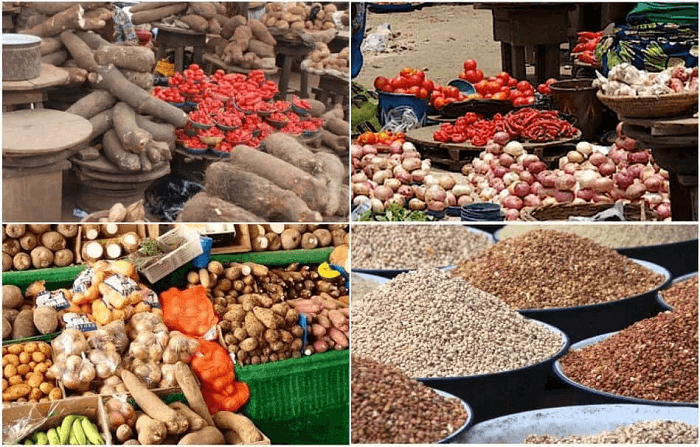Stakeholders in the agricultural value chain, including the minister of state for budget and national planning Clem Agba and Prof. Abba Gambo of Yobe State University have unanimously agreed that Nigeria must deal with the structural issues – poor road network, access to credit facility and power to achieve its food security target.
Dean, faculty of agriculture, Yobe State University, Prof. Abba Gambo who said everyone, adult and children require meat and milk intake daily to have balance diet, added that Nigeria should emphasis on export-based crops to reach its target.
The government’s mission of transforming the food systems for food security, improved nutrition and affordable healthy diets is challenged by conflicts, climate change, economic slowdown and downturns among. That has put the country off track to ending all forms of hunger and malnutrition.
He made the remarks at the national sensitisation workshop on implementation of the United Nations food systems transformation pathways for Nigeria.
The workshop was organised specifically to present the identified priority actions including the low hanging fruits programmes for food systems transformation pathways in Nigeria to all relevant stakeholders and to mobilise their support towards ensuring its effective implementation.
Permanent secretary in the ministry of budget and national planning, Engr. Nebeolisa Anako requested government at all levels as well as development partners to key into the implementation of food systems transformation pathways agender that was launched last year.
To achieve its target, Prof Gambo said Nigeria should come up with farmers database, comprehensive soil map, efficient water management systems, germplasm development, research and development and access to credit. Food insecurity and malnutrition levels have been on the rise in Nigeria despite significant interventions by government, development and humanitarian partners.
Stating that focusing on areas where Nigeria has comparative advantage for crop production and processing, Gambo said an effective and efficient extension system, improved gender consideration, comprehensive impute delivery, emphasy on value-gains, commercialization and agriculture and re-orientation towards export are some of the things needed to reach the desired goal. “Agriculture gives the highest profit,” he stated.
United Nation’s resident/humanitarian coordinator to Nigeria Mathias Schmale said Nigeria needs to transform ways in which she produces, manage harvests, process and consume food – as this touch every aspect of life on earth. “Food is the bedrock of our cultures, our economies, and our relationship with the natural world. It evidently brings us together as families, communities and nations,” Schmale who wss represented by Mr. Fred Kafeerosaid.
Prince Agba said the issues challenging food security in Nigeria go beyond scarcity of food in the market. He said out of the 10,000 of tons of food produced today, only 4000 gets to the market.
He said state governors should be blamed for the situation. “Our governors are our problems. They leave the basic things they should dealt with and begin to focus on monuments,” he stated.
Agba said the remarks by Presidential candidate of the Peoples Democratic Party (PDP) Atiku Abubakar where he said that the last eight years of President Buhari is a waste, was failure of Atiku to realise that it takes two to tangle. He said while the federal government is doing its best, the states are luxuriating.
“Are we building roads in the rural area? The answer is no,” Agba said, adding that Nigerians need to begin to hold which government responsible for providing what.
Agba said the recent poverty report by the National Bureau of Statistics is a pointer to the fact that poverty in Nigeria need not to be blamed on the federal government. The minister said Bayelsa has received over N100 billion in the last 11 months, asking why should they still be ranking second in national poverty index. “Is Buhari the governor of Bayelsa State? Is he the governor of Sokoto State that is the first state in the poverty index,” Agba asked.
He said poor access to the market is a major encumbrance to food security and production for export. “Collectively, we all need to put our hands on deck. And to the governors, continue to build rural roads to aid movement of food,” he stated. The national planning minister said the reason food prices are low at the farm gates and higher at the markets is due to no good road network to move the farm products or processed foods to the market.
“I am worried for food this year in Nigeria, especially following the recent floodings,” he said, adding that everyone also needs to be wary of the expected bush burning across the country by local hunters. He said the Nigerian economy is currently being run (100 per cent) by the non-oil sector, led by agriculture and telecoms sectors.
We’ve got the edge. Get real-time reports, breaking scoops, and exclusive angles delivered straight to your phone. Don’t settle for stale news. Join LEADERSHIP NEWS on WhatsApp for 24/7 updates →
Join Our WhatsApp Channel










